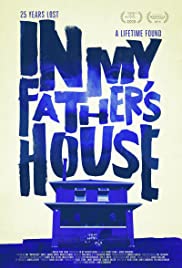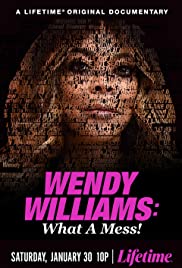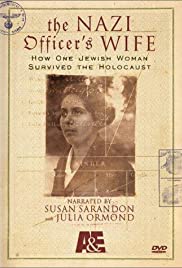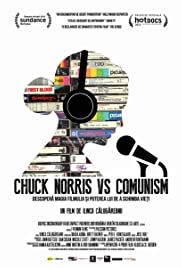
IN MY FATHER’S HOUSE explores identity and legacy in the African-American family, as Grammy award-winning rapper Che ‘Rhymefest’ Smith and his long-lost father reconnect and try to build a new future in Chicago’s turbulent South Side. Himself a child of a broken home, Che hasn’t seen his father, Brian, in over 20 years, and presumes him dead. But after buying his father’s childhood home, Che sets out to find him, and learns that his is now a homeless alcoholic living only several blocks away/ The film offers a probing take on memory and identity in a family two generations removed from slavery as it tracks Che and Brian’s shared journey to create a new legacy for themselves, their community and the next generation of family.
You May Also Like

In this documentary, Wendy Williams, the self-anointed Queen of all Media, sheds her private persona and speaks directly to the camera, discussing every inch of joy and humiliation she has experienced since childhood.

Giancarlo Parretti was central to one of Hollywood’s greatest scandals. In 1990, Parretti bought iconic James Bond studio Metro-Goldwyn-Mayer/United Artists for $1.3B with high hopes. However, within weeks, the 17th James Bond film (GoldenEye) was put on ice, paycheques to Dustin Hoffman and Sylvester Stallone had bounced, and hundreds of staff were fired. Parretti soon faced an FBI investigation for alleged financial irregularities and his ownership of Hollywood’s most famous studio spiraled out of control.

In a warehouse in the heart of Los Angeles, a dwindling handful of devoted craftspeople maintain more than 80,000 student musical instruments, the largest remaining workshop in America of its kind. Meet four unforgettable characters whose broken-and-repaired lives have been dedicated to bringing so much more than music to the schoolchildren of this city.

A mother and a daughter struggle to climb the Swiss Alps while they dig into a past that the mother has spent years suppressing. The daughter was sexually abused by her stepfather as a child and lately she has begun to doubt whether her mom knew what was going on. The daughter’s persistence in trying to make her mom remember and take responsibility puts the two women’s relation to a hard test.

Taped at the iconic Apollo Theater, Wayans comedically explores grief after losing his parents. He reflects on his father’s lessons, joining the “Dead Mama Club,” changing aging parents’ diapers, and who’s the funniest Wayans.

In an effort to improve feminine hygiene, a machine that creates low-cost biodegradable sanitary pads is installed in a rural village in Northern India. Using the machine, a group of local women is employed to produce and sell pads, offering them newfound independence and helping to destigmatize menstruation for all.

Edith Han was an young woman that was studying law in Vienna when the German forced Edith and her mother into a Jewish ghetto.

What would it sound like if the national anthem was written today? Anthem follows composer Kris Bowers and producer Dahi on a musical road trip across the country to reflect on “The Star-Spangled Banner” to find out.

Andreea Raducan, a successful 32-year-old woman and one of Romania’s greatest gymnasts, sacrificed her childhood to become an Olympic champion. She finally won the all-round Olympic gold medal in Sydney in 2000, but was stripped of it three days later after testing positive for a doping substance contained in a flu tablet her doctor had administered to her minutes before she entered the competition. Fifteen years later, Andreea is fighting the toughest fight against the people who deceived her, as she tries to recover her medal and, along with it, her dignity.

In late eighties, in Ceausescu’s Romania, a black market VHS bootlegger and a courageous female translator brought the magic of Western films to the Romanian people and sowed the seeds of a revolution.

Miriam Makeba was one of the first African musicians who won international stardom and whose music was always anchored in her traditional South African roots. Miriam Makeba was forced into exile in 1959. She sang for John F. Kennedy, performed with Harry Belafonte and Nina Simone, was married to Hugh Masekela and also Stokely Carmichael. Her life was tumultuous. She always stood for truth and justice. She fought for the oppressed most importantly for black Africans, as a campaigner against apartheid. She died November 2008 after a concert in Italy. Mika Kaurismäki’s documentary, traces fifty years of her music and her performing life. Through rare archive footage of her performances and through interviews with her contemporaries we discover the remarkable journey of Miriam Makeba.

Di is a 12-year-old girl from the mist-shrouded mountains of northern Vietnam. She belongs to the Hmong, an ethnic minority in which girls get married at a very young age. This is often preceded by a controversial “bride-napping,” where the girl is abducted by her future husband on New Year’s Eve. Negotiations between the families follow. This also happened to Di’s sister and their mother, so it doesn’t seem strange that in preparation the women and girls discuss sex and married life without embarrassment. But Di also goes to school, where she learns very different values. And in her own way, even Di’s mother tries to warn her daughter about child marriage.